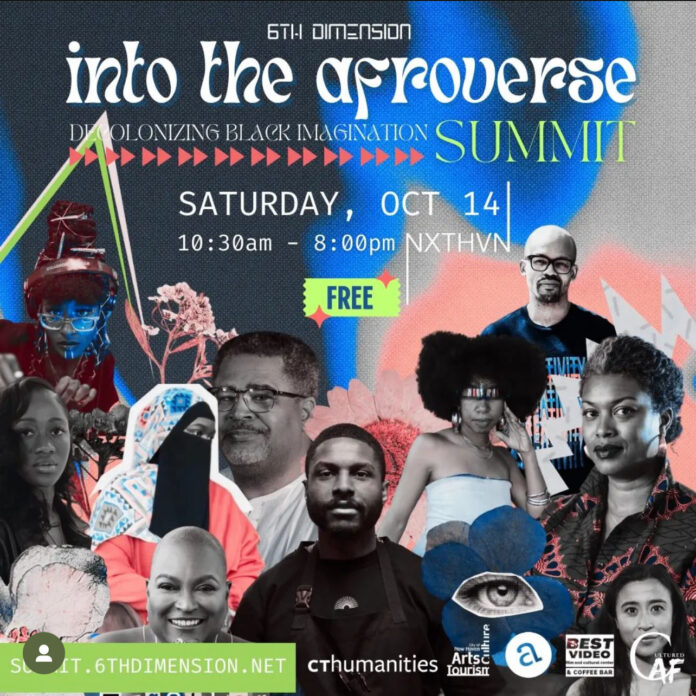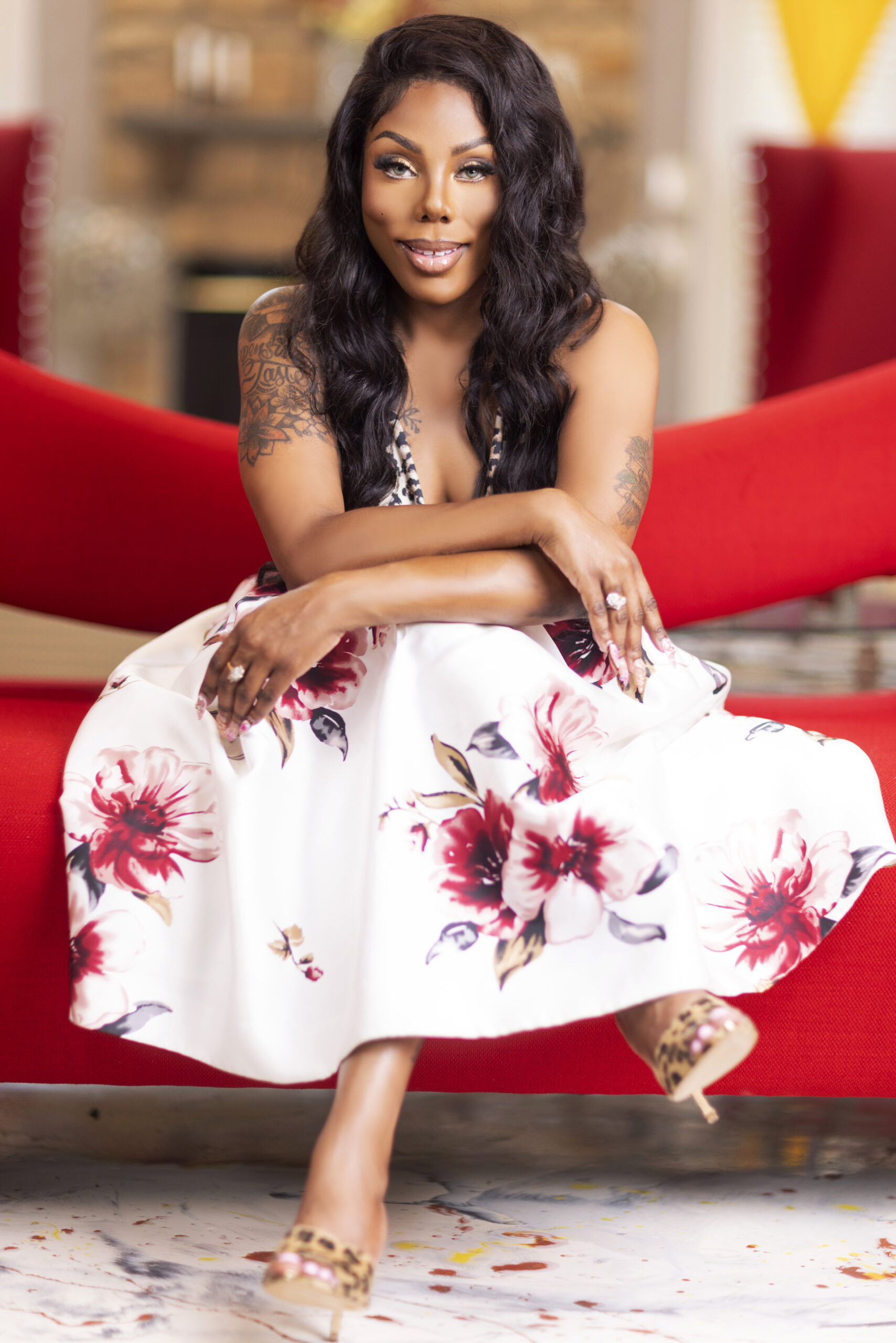( ENSPIRE She Did That ) Juanita Austin is Empowering Black Voices Through Art, Technology, and Cultural Exploration
Juanita “Sunday” Austin, a cultural producer and curator hailing from New London, Connecticut, is not just an artist but a visionary shaping the cultural landscape with her creative prowess. Juanita’s journey as a cultural leader has been nothing short of inspirational. Her work extends beyond conventional artistry, encompassing community arts initiatives and fostering equitable spaces for underrepresented artists, especially Black and Queer individuals. With over five years of experience in the arts, she has now found her home in New Haven, serving as the Producer for the International Festival of Arts and Ideas, among other vital roles.
Juanita’s innovative endeavors are personified by “6th Dimension,” an Afrofuturistic Arts Festival set to grace New Haven later this year. This remarkable festival, running from August 26 through October 21, 2023, promises a city-wide exploration of Afrofuturism, transcending visual art, performance, technology, literature, and innovation, as it captivates audiences with immersive exhibitions, satellite galleries, public art, and a thought-provoking one-day summit.
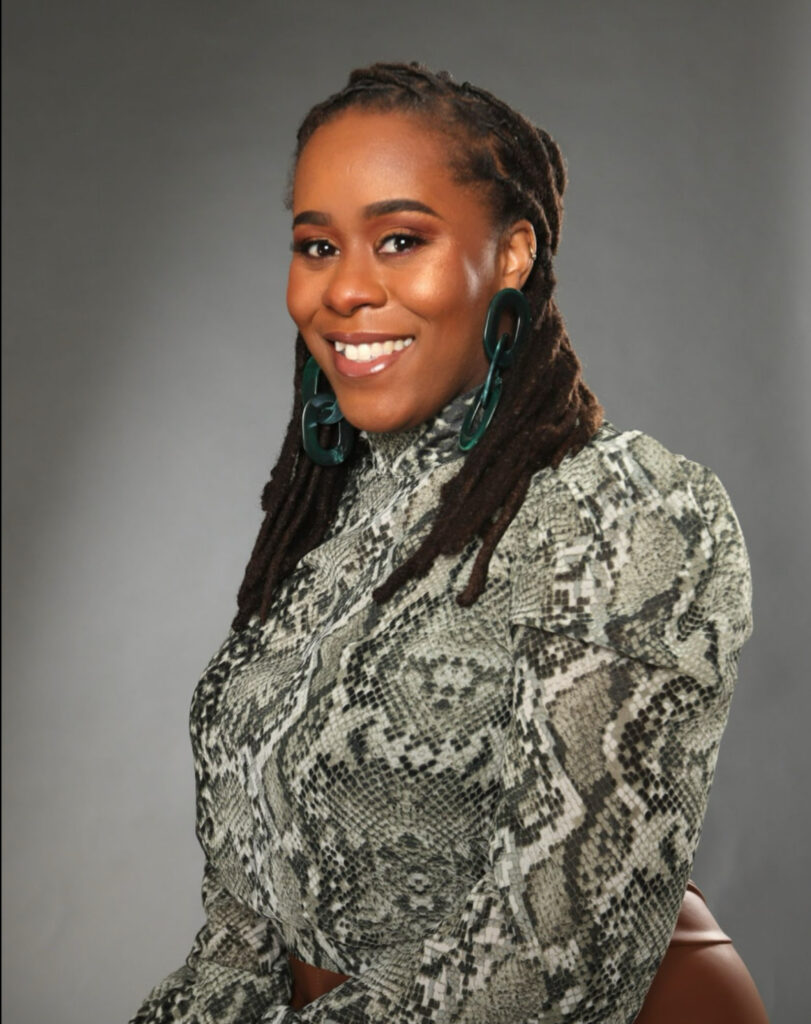
Join us on this voyage into the future of art, innovation, and the boundless possibilities of the Afrofuturist movement, as Juanita “Sunday” Austin shares her insights, inspirations, and aspirations for a world where Black voices take center stage.
Can you tell us more about your journey as a Black creative director, curator, and afrofuturist? How did you get started in this field, and what drives your passion for exploring these themes?
I guess my journey really started in undergrad at UConn. My degree is in digital media and design, with a focus on interactive media. My senior capstone project was the first exploration into producing and curating content that highlighted Black identity and culture. I produced 3 videos with spoken word artists talking about what it means to identify as Black, curated an interactive digital magazine featuring CT-based Black artists along with designing a website. I didn’t realize then that, that work was going to be the basis of my career. My first job in the arts was back in 2016 working at a nonprofit art gallery and it was there that I could curate my first exhibition, Illumination, focusing again on Black identity.
From that first exhibition in 2017 I continued curating a show every year. 2019 was Reclaimed: an exhibition on reclaiming Black traditional religions and spirituality. That same year I started Cultured AF as a platform to celebrate Black arts & culture and provide a space and opportunity for Black artists to thrive, particularly in my hometown of New London.. 2021 followed with NAPPY, an exploration on Black hair. This was also the year that I took a workshop called “How to Think Like an Afrofuturist” by Ingrid LaFleur and that was really the catalyst for 6th Dimension and the work that I’m doing now. I’m driven by creating experiences that allow for Black joy and creativity to bloom. Afrofuturism allows me to imagine all realities and possibilities for Black people and unashamedly center our own experiences in a liberated world.
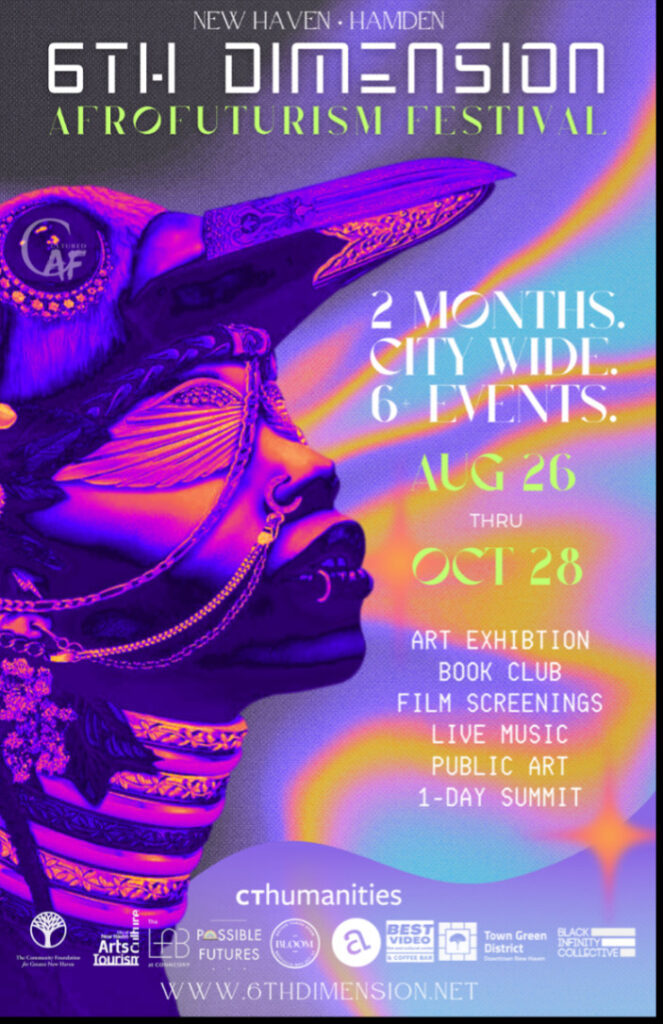
The term Afrofuturism is becoming more recognized, but can you provide our readers with your interpretation of it? How do you see Afrofuturism intersecting with Black culture and community?
Afrofuturism IS Black culture and community, across the diaspora. It’s already integrated into our art, music, movies, and literature. But it’s more than just an aesthetic or genre, it’s a framework and ideology that re-writes the past, questions the present, and re-imagines a liberated future for Black people where we are the center of our universes. Afrofuturism is a powerful way for Black people to write our own narratives, empower our communities, and innovate the culture.
Could you share a bit about the inspiration behind this event and how it relates to your previous 6th Dimension exhibition?
The festival is an extension of the original 6th Dimension exhibition that opened earlier this year at Connecticut College. When I conceived the idea of 6th Dimension, I originally wanted to produce the exhibition in 3 cities concurrently (New London, Hartford, and New Haven). I wanted it to feel like “everything, everywhere, all at once,” inspired by the movie of that name. I decided instead to make it a year-long experience and travel the exhibition throughout the year. The Hartford show fell through, so I expanded the programming to create a decentralized festival in New Haven & Hamden. This version of the exhibition includes some artists and artwork from the original show but expanded to include new artists, more installation work, and more interactive.
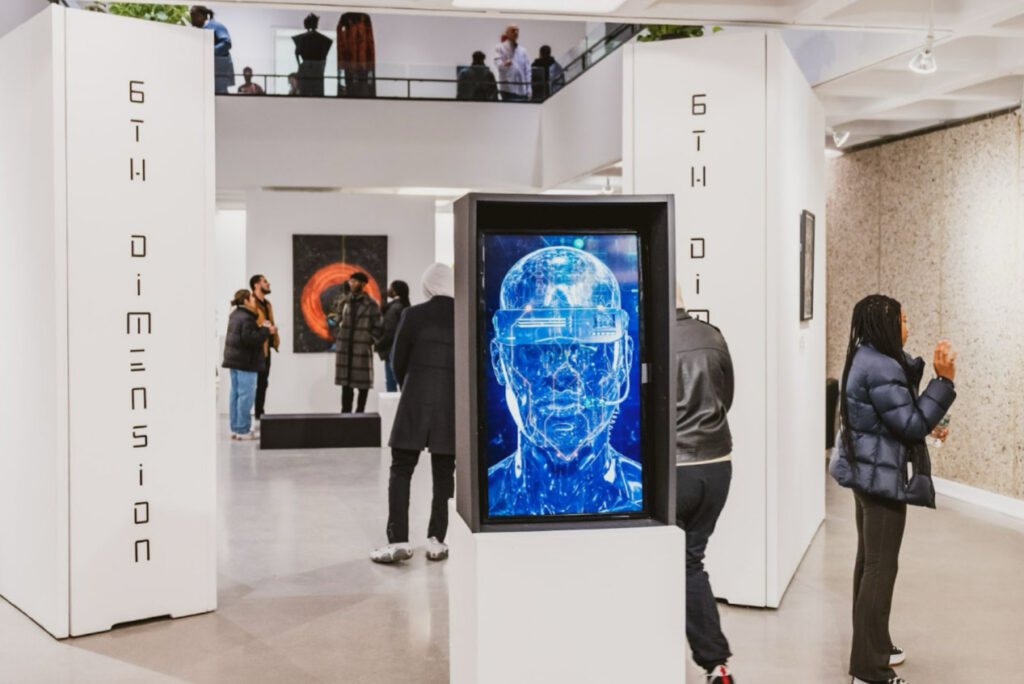
6th Dimension was born out of the idea of wanting to explore what Blackness looks like across time and space. I love sci-fi and specifically notions of time travel and alternate dimensions. According to the Marvel Universe, the 6th Dimension is “the final realm and highest plane of existence in the Multiverse whose inhabitants exist beyond time and are capable of things beyond the imagination of most living beings.” That’s where I got the name from, as well as my love for Willow Smith’s song “Wait a Minute!” where she mentions losing her consciousness in the 6th Dimension.
Afrofuturism often encourages communities to reimagine their futures through a blend of technology, culture, and creativity. How do you believe Afrofuturism can positively impact and empower Black communities?
There can’t be change unless you can first see a different future. Afrofuturism allows Black people to control their own narratives outside the confines of white supremacy and colonialism, where we are the center of our own universes with agency. That ability to reimagine your own history is powerful. Afrofuturism teaches us to question our reality and ask why not? If we can envision a positive future, we can make it.
The concept of envisioning alternative futures is powerful. How do you see Afrofuturism helping individuals and communities break free from limiting narratives and create their own narratives?
One of my favorite quotes is “colonized minds come up with colonized solutions.” Afrofuturism is a tool to decolonize our thinking and liberate our minds. I think positive visual representation is important. That’s where the arts are so powerful. Being able to see yourself within art that is uplifting, created by Black Artists for Black people is the first step in envisioning other possibilities. It just takes a spark, a moment of connection. But you can’t dream in darkness. Afrofuturism is that guiding light.
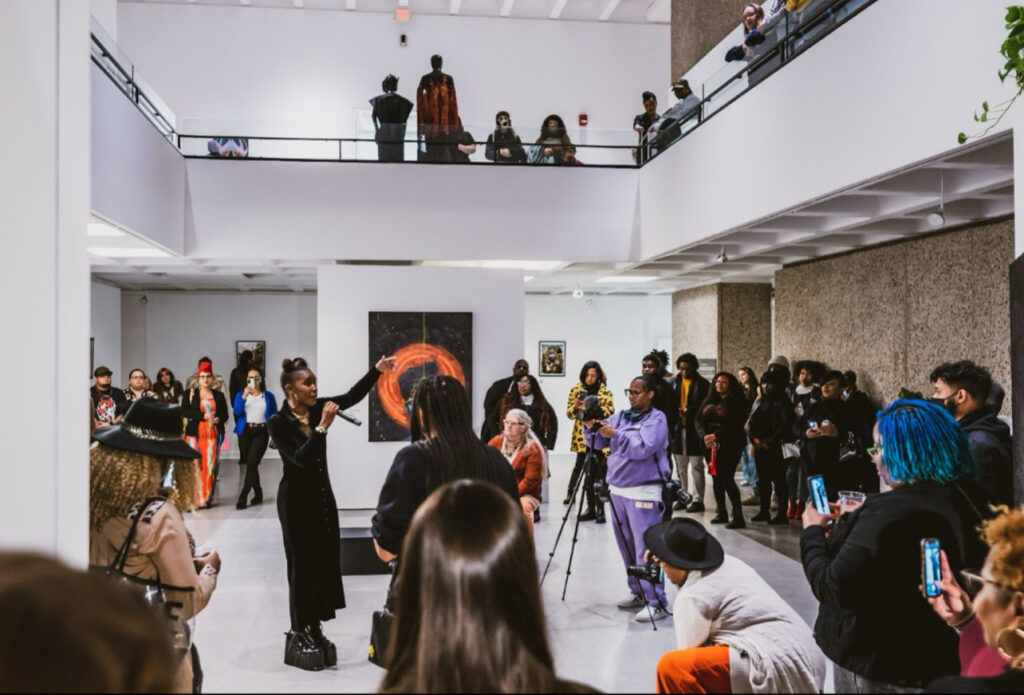
Your work often explores the intersections of art, technology, and culture. Could you give us a sneak peek into what attendees can expect from the Afrofuturism festival? What kinds of experiences and activities are you curating to engage and inspire the audience?
I modeled this festival similar to Carnegie Hall’s Afrofuturism Festival in 2021. It’s decentralized over the course of two months, meaning that there are several events happening at different sites in New Haven & Hamden. I wanted to create an experience that allowed folks to engage with the concepts of Afrofuturism from different points of entry. In addition to a multidisciplinary and interactive visual art exhibition, there is a book club, The Afrogalactic Tea Party, a jazz event, film screenings, and a one-day summit “Into the Afroverse.” This approach allows folks to not only choose their own adventure but also stimulate different interests that may reach audiences in unique ways.
Representation is crucial in empowering marginalized communities. How do you approach representation within the context of Afrofuturism, and how will this be reflected in the festival?
I think it’s important to always note that Blackness is not a monolith and even within the Afrodiaspora we are so diverse. Intersectionality within our Blackness can not be forgotten. Having representation through age, class, gender, sexuality, even nationality is key. When I was curating the panels for the Into the Afroverse Summit, I realized that the majority of the conversation would be a Black American perspective so I decided to include a discussion on Brazilian Afrofuturism to broaden the scope to the global Afrodiaspora. The Festival book club is reading Janelle Monae’s Memory Librarian and will center a conversation on Black queer love. Those are just two examples of representation and intersectionality within the context of Afrofuturism.
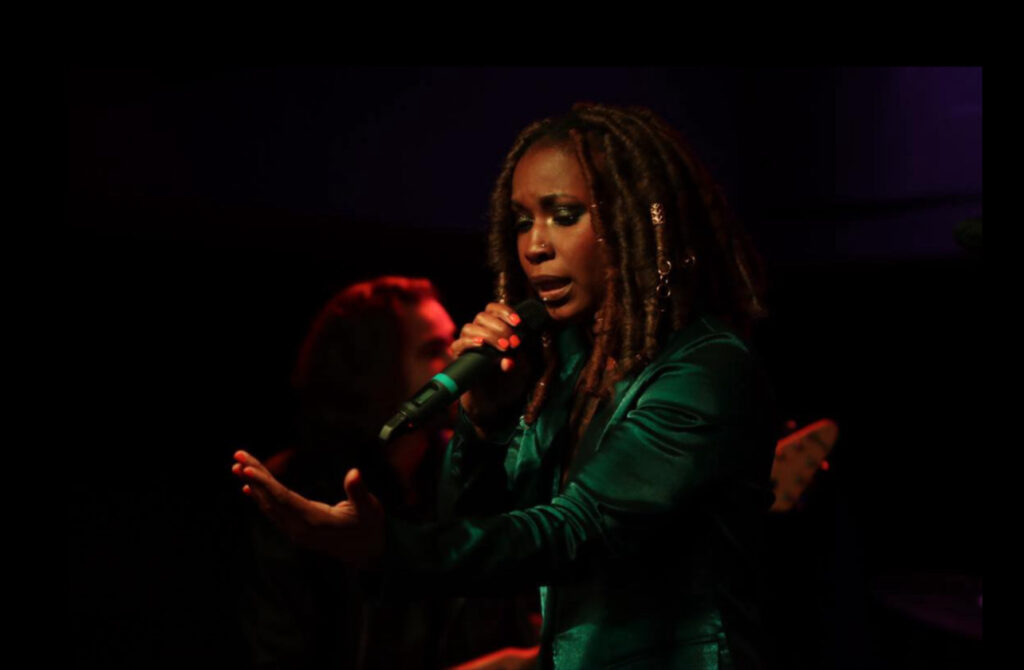
With the festival approaching, what message do you hope attendees will take away from the experience? How do you envision the festival sparking conversations and collaborations that extend beyond the event itself?
Art is typically used as a mirror or a reflection of the world, but I want this experience to be a window into a world of limitless possibilities of the Black experience beyond colonialism and white supremacy. I want folks to imagine a future for Black people where we are not merely surviving but thriving. I see the festival as a catalyst for future Afrofuturist programming in Connecticut. I hope it’s the beginning of a movement here and folks start thinking about how their work sits within an Afrofuturist framework.
Afrofuturism has the potential to challenge conventional norms and explore new possibilities. How do you see this movement evolving and growing in the coming years, and how do you intend to continue contributing to its expansion?
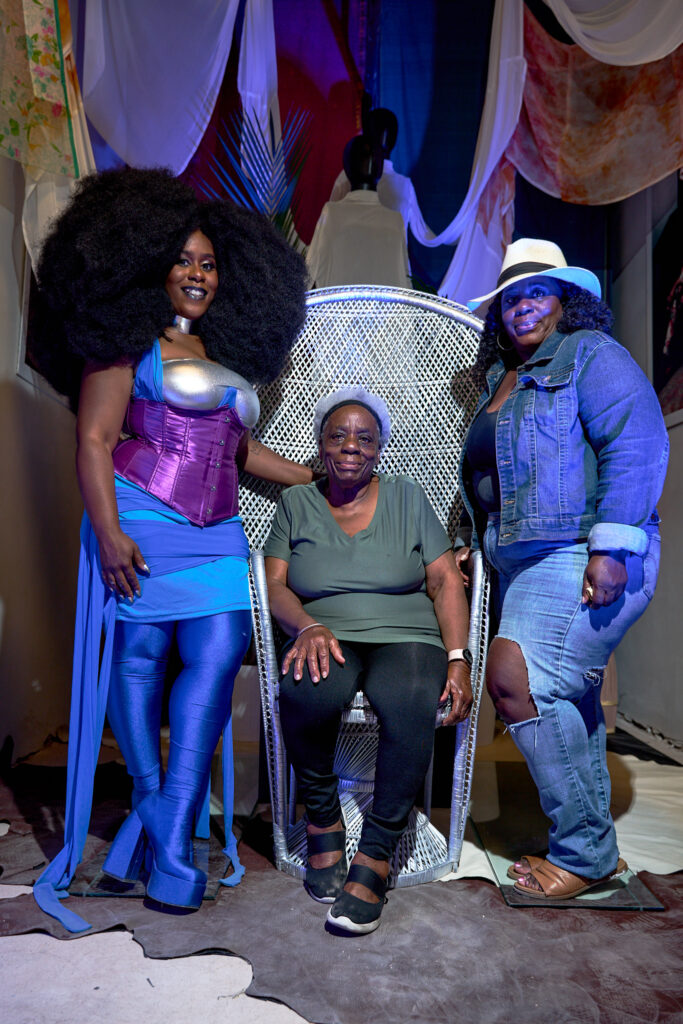
Afrofuturism is still a new and unfamiliar concept to a lot of people but I definitely see that changing in the coming years. Already I’m seeing more Afrofuturist programming in Connecticut which is really cool. What I would hope to see is how folks will start using Afrofuturist principles of cooperative economics, co-creation, transformation, and radical love (to name a few from Ingrid LaFleur’s How to Think Like an Afrofuturist workshop) to re-program our current realities. In LaFleur’s workshop we questioned: are we harming the Black body, are we continuing the colonial agenda, and how are we expressing love? This workshop really inspired me and was the spark in my Afrofuturist journey.
This is why I thought it was important to produce the Into the Afroverse Summit for the Festival which will put community work into an Afrofuturist context and expand beyond just the art and aesthetics that people are familiar with. I am excited that Ingrid LaFleur will be the closing keynote speaker.
I would love to continue producing a yearly festival and/or summit in New Haven on Afrofuturism. I already have some ideas for next year that I’m excited about.
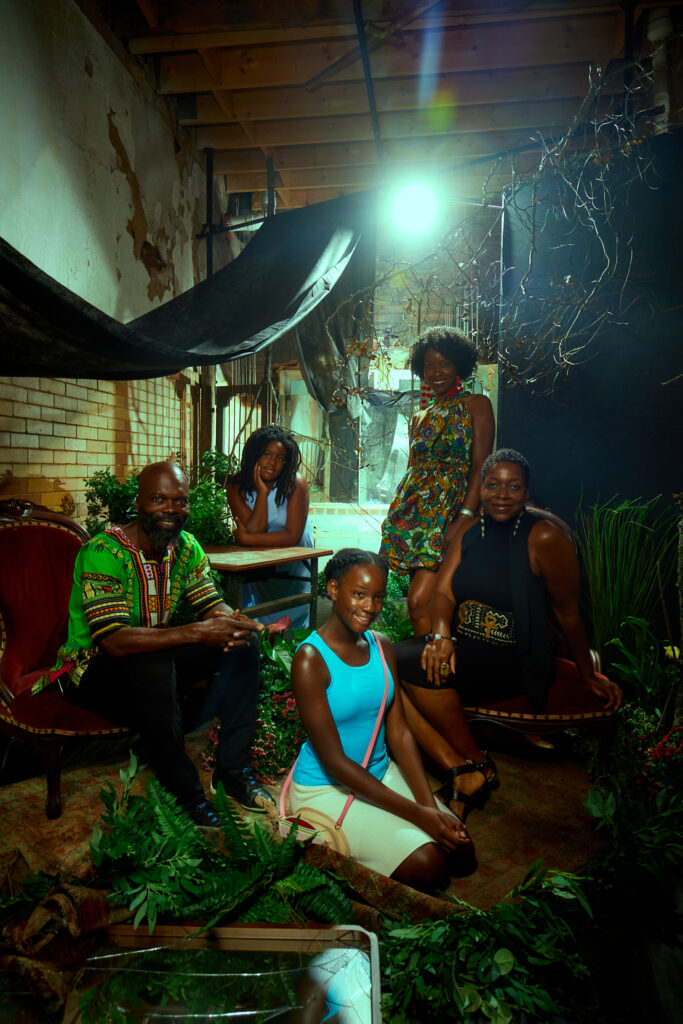
As an afrofuturist and creative visionary, what advice do you have for young Black individuals who aspire to make their mark in the realm of creativity, innovation, and cultural exploration?
In the realm of Afrofuturism and creativity, remember that you are not just a creator; you are a catalyst for change, a shaper of narratives, and a visionary of a brighter future. Embrace the journey with passion and determination, and let your creativity be a force for transformation and empowerment. Question your reality. Challenge the norm. Liberate the future.
As a trailblazer in the realm of Afrofuturism and a passionate advocate for Black and Queer communities, Juanita’s work symbolizes the potential of art to catalyze change and liberate narratives. The Afrofuturism festival she orchestrates embodies this vision, offering a unique opportunity for the community to engage with transformative concepts. As she navigates the intersections of art, technology, and culture, Juanita’s work exemplifies how Afrofuturism can empower marginalized communities and serve as a guiding light toward reprogramming current realities.
Make sure to follow @6thdimensionfest @culturedaf.life @curator.nita
Related Articles: Afro Unicorn® Lifestyle Brand Created by April Showers, Afropop: The Ultimate Cultural Exchange Released 15th Season

